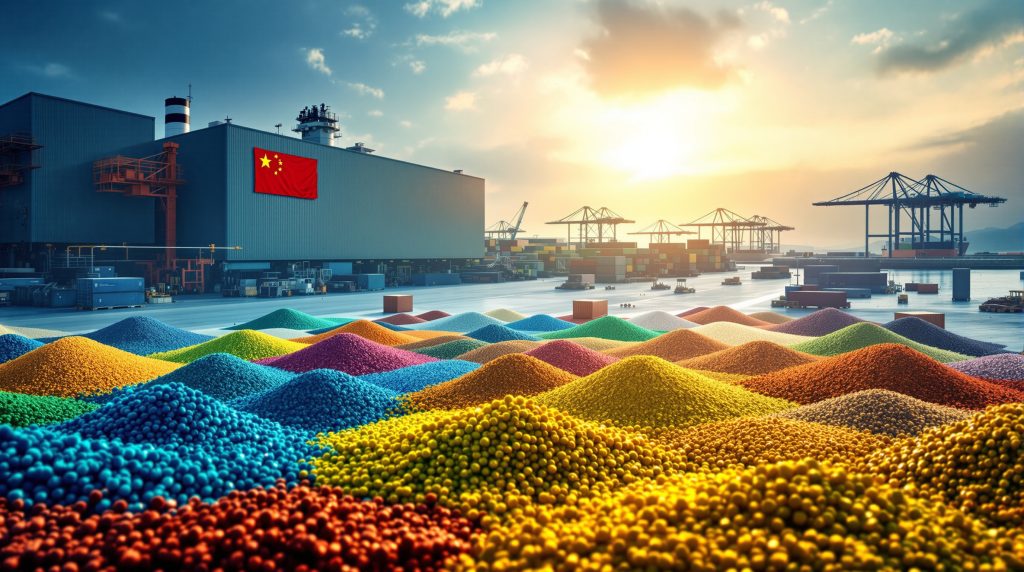Washington strikes back with aggressive tariff plan
In a dramatic move that could redefine global trade relations, US President Donald Trump announced a 100 percent tariff on all Chinese imports, set to take effect on November 1, 2025, or sooner if Beijing takes further aggressive actions. The measure comes in response to China’s decision to expand export restrictions on rare earth elements and other key industrial materials.

President Trump made the announcement on Truth Social, accusing China of adopting an “extraordinarily aggressive” stance in its trade policy. He said that Beijing had sent what he described as a “hostile letter” to other nations, outlining plans to impose sweeping export controls on almost every product manufactured in China — and some not even made there.
“This affects all countries without exception,” Trump wrote. “It is absolutely unheard of in international trade and a moral disgrace in dealing with other nations.” He added that the US would act independently of other countries affected by China’s policies and that export controls would also be implemented on all critical software starting November 1.
China’s rare earth curbs deepen the divide
China’s latest trade measures have reignited global concerns over supply chain disruptions. The Chinese government recently added five more rare earth elements — holmium, erbium, thulium, europium, and ytterbium — to its list of restricted exports, bringing the total to 12 of the 17 rare earth materials under control.
These materials are crucial to a wide range of industries, from electric vehicles and renewable energy systems to fighter jets and advanced semiconductor production. Beijing’s Commerce Ministry said the restrictions were introduced to “safeguard national security” and prevent the misuse of sensitive technologies.
In addition, China announced new export limitations on lithium batteries and graphite anode materials — key components in the electric vehicle sector. These restrictions will take effect between November and December, further tightening the global supply of clean energy inputs.

A global trade standoff intensifies
The White House’s latest decision represents one of the most significant escalations in the US–China trade war since it began in 2018. The announcement came just weeks before the Asia-Pacific Economic Cooperation (APEC) Summit in South Korea, where both President Trump and Chinese President Xi Jinping are expected to attend.
When asked about a potential meeting with Xi, Trump told reporters there was “no reason to meet” following Beijing’s recent actions, which he described as “very hostile.” However, he clarified that the meeting has not been officially cancelled.
Analysts say the timing of these events could signal a deepening of the economic rift between the two superpowers. The US move mirrors China’s increasingly assertive trade policies, suggesting that the conflict is now expanding beyond tariffs into a full-scale economic confrontation over critical technologies, software, and natural resources.

Impact on global markets and supply chains
The new tariff announcement has already sent ripples through global markets. Economists warn that doubling tariffs on Chinese goods could increase production costs for US manufacturers and trigger inflationary pressures, especially in sectors reliant on electronics, automotive components, and consumer goods.
At the same time, China’s export restrictions threaten to disrupt supply chains across Asia, Europe, and North America. Rare earth materials are essential for everything from smartphones to defense systems, making them critical to both national security and technological innovation.
The rare earth market, long dominated by China, could see renewed efforts from the US and its allies to diversify sources of supply. Countries such as Australia, Canada, and Japan have already begun exploring new mining and refining projects to reduce their dependence on Chinese exports.

The next phase of the trade war
The 100 percent tariff signals that the US is ready to take the trade conflict to unprecedented levels. The Trump administration argues that the measure is necessary to protect American industries and counter what it calls “unfair trade practices.” However, global observers warn that such policies could trigger retaliatory measures from China, leading to further market instability.
This latest development underscores how geopolitical rivalry is now shaping global economic policy. What began as a dispute over tariffs and intellectual property has evolved into a competition over technology, energy security, and supply chain dominance.
As both nations dig in their heels, the world braces for what could be the most consequential trade confrontation of the decade — one that may reshape the balance of power in global commerce.
Follow You Finance on Instagram and Facebook for the latest updates on international trade, global markets, and economic policy trends that shape the future.















